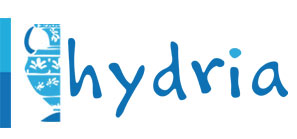METHODOLOGY
The HYDRIA study involves a representative sample of the population of Greece. In total, more than 4,000 people, male and female over 18 years of age, from all 13 regions of the Country, participate in the study. Sampling was based on the outcome of the 2011 population census.
The data collected as part of the HYDRIA study are protected by relevant legislation and by the approval granted to the Hellenic Health Foundation by the Hellenic Data Protection Authority (www.dpa.gr) for the establishment and operation of sensitive personal data records, in accordance with the 2472 /1997 law. Facts and data from participants are encoded in a way such that there is no risk of a breach of confidentiality. It is therefore not possible to detect participants identity and personal data.
The program is conducted in all counties (nomous) of the 13 regions of the country. Data collection is taking place in Health Centers, places of primary healthcare (e.g. regional medical offices) and local facilities.
The data collection includes:
1. Personal interviews for filling in a questionnaire covering health information and aspects of lifestyle (medical history and lifestyle habits, e.g. physical activity and tobaccos smoking ).
2. Filling in detailed, interviewer - administered questionnaires to record the dietary choices of individuals.
3. Measurements of pulse and blood pressure.
4. Measurements of height, weight, waist and hip circumference.
5. Blood sample for laboratory analyses (glucose, uric acid, total and HDL cholesterol, creatinine, calcium, total protein, transaminases).
|




